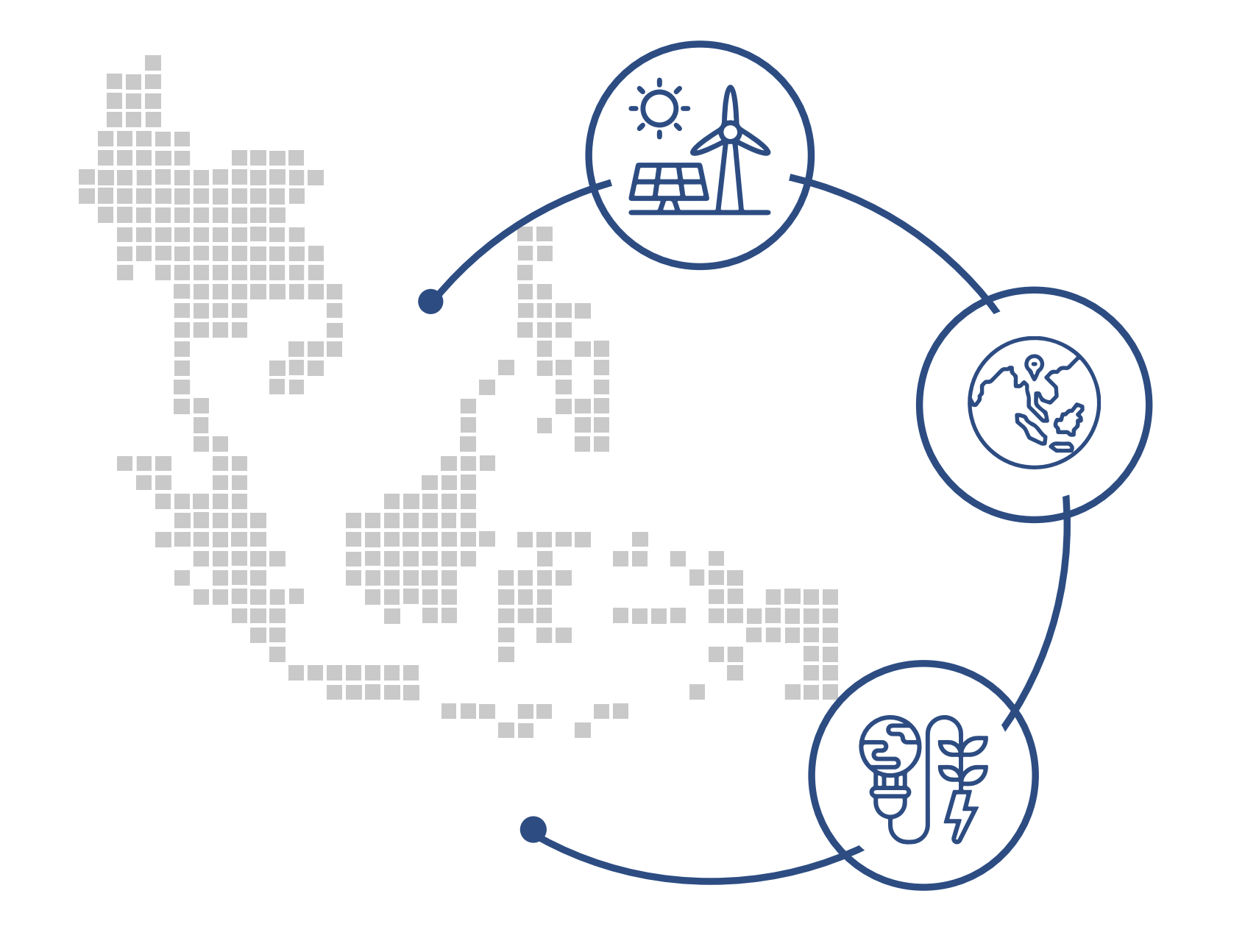Environmental taxes are a widely used tool to tackle climate change around the world. According to the World Bank (World Bank, 2022), in 2022 thirty-seven carbon taxes were implemented or planned to be. Such taxes are usually considered as one of the best instruments to mitigate pollution, as they have two main benefits: they allow people to internalize the externality by making them pay for the damage they generate (this is the polluter-pay principle), and they provide fiscal revenue to governments. Yet, environmental fiscal policies do not impact agents in the same way: poorer households are more impacted both by pollution and by environmental taxation as they spend a higher share of their income on polluting goods and services. This is in contradiction with the fact that richer households are the ones polluting more (Chancel, 2021). In this case, pollution mitigation through carbon taxation works against inequality reduction: this is the efficiency-equity tradeoff. This link between pollution, carbon taxation and inequal- ity, and the need to implement more equitable environmental policies has been highlighted in several IPCC reports and climate pacts. Analysing the distributional impact of environmental tax reforms is also an important matter regarding their acceptability by the population: losers of such reforms must be compensated.
The distributional impact of pollution taxes led economists to focus on the recycling of the en- vironmental tax revenue. Indeed, using the tax revenue can lead to less regressive tax reforms without changing governments’ fiscal revenues. The way the tax revenue is recycled matters in the distributional impact of pollution taxes, as it has an impact on households’ decisions and hence on inequality (Fremstad and Paul, 2019; Lamb et al., 2020). Among the most efficient recycling schemes are transfers and labor income tax cuts. Used together, it allows to make poorer households bear less of the tax burden. Lump-sum transfers can be either uniform across households (everyone receives the same transfers), or targeted to more affected people. When transfers are uniform, progressivity cannot be achieved through this mechanism, and using a re- duction in distortionary taxes do not necessarily reduce inequality (Klenert et al., 2018). When targeted, transfers can be used to redistribute the excess tax revenue to poorer households after tax cuts, and hence make the tax reform progressive.
A key feature of such analyses is the presence of a subsistence level of consumption for polluting goods and services. Indeed, some of these goods and services are a necessity, for example energy or gas when using a non-electric car. Financially constrained households are also the most con- strained regarding switching towards less polluting goods: omitting this aspect of consumption behaviours can distort the inequality impact of carbon taxation. When individualised transfers are available to redistribute the tax revenue, subsistence consumption plays an important role both for the efficiency and the distributional impact of such reforms (Hainnaux and Seegmuller, 2022). As pollution taxes increase the price of goods, most affected households must receive compensations high enough so that, (i) they can still meet the subsistence level of consumption they need, (ii) their income does not decrease more or increase less than the one of richer individ- uals. Otherwise, environmental taxation fails at reducing inequality. A high level of subsistence consumption can also jeopardize the efficiency of pollution taxes. When the subsistence level of consumption of such goods and services is high, taxing its consumption affects even more finan- cially constrained household. Yet, redistributing all of the tax revenue through individualized transfers can make the extra income received through transfers overcompensate the increase in prices. In this case, individuals would increase their polluting consumption in order to depart from the subsistence level of consumption: pollution taxation also fails at reducing emissions.
Policymakers must take into account that pollution taxes heterogeneously affect people. As poorer individuals are more affected, implementing a progressive recycling scheme is of high importance when introducing environmental fiscal policies. Quantifying the extent to which pol- luting goods and services are a necessity for certain categories of people is also important, as it shapes the efficiency and equity impact of such policies. Governments must discuss how to compensate losers of environmental tax reforms under tight consumption constraints, both to tackle the equity-efficiency tradeoff and the acceptability issue of green taxes.
Click here to read the full article
About Authors


Research professor,
Aix-Marseille Université,
Focus on Macroeconomic policies, fluctuations and labor market
References
Chancel, L. (2021). Climate change and the global inequality of carbon emissions, 1990–2020. World Inequality Lab| Paris School of Economics.
Fremstad, A. and Paul, M. (2019). The impact of a carbon tax on inequality. Ecological Eco- nomics, 163:88–97.
Hainnaux, C. and Seegmuller, T. (2022). Pollution versus Inequality: Tradeoffs for Fiscal Policy. AMSE working paper.
Klenert, D., Schwerhoff, G., Edenhofer, O., and Mattauch, L. (2018). Environmental taxation, inequality and engel’s law: the double dividend of redistribution. Environmental and Resource Economics, 71(3):605–624.
Lamb, W. F., Antal, M., Bohnenberger, K., Brand-Correa, L. I., Müller-Hansen, F., Jakob, M., Minx, J. C., Raiser, K., Williams, L., and Sovacool, B. K. (2020). What are the social outcomes of climate policies? a systematic map and review of the ex-post literature. Environmental Research Letters, 15(11):113006.
World Bank (2022). State and trends of carbon pricing 2022.






